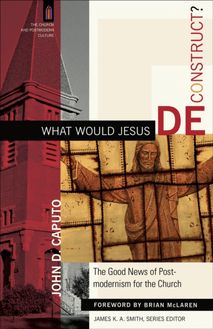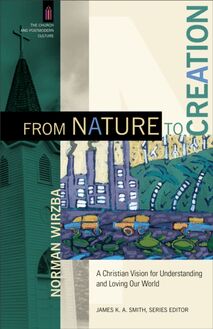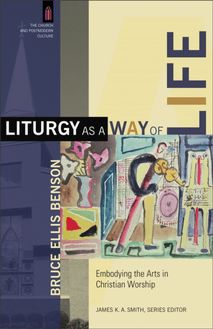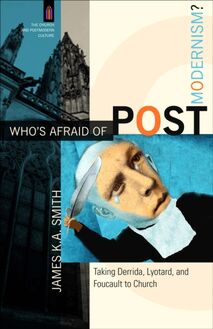-
 Univers
Univers
-
 Ebooks
Ebooks
-
 Livres audio
Livres audio
-
 Presse
Presse
-
 Podcasts
Podcasts
-
 BD
BD
-
 Documents
Documents
-
- Cours
- Révisions
- Ressources pédagogiques
- Sciences de l’éducation
- Manuels scolaires
- Langues
- Travaux de classe
- Annales de BEP
- Etudes supérieures
- Maternelle et primaire
- Fiches de lecture
- Orientation scolaire
- Méthodologie
- Corrigés de devoir
- Annales d’examens et concours
- Annales du bac
- Annales du brevet
- Rapports de stage
La lecture à portée de main
Vous pourrez modifier la taille du texte de cet ouvrage
Découvre YouScribe en t'inscrivant gratuitement
Je m'inscrisWhat Would Jesus Deconstruct? (The Church and Postmodern Culture) , livre ebook
Découvre YouScribe en t'inscrivant gratuitement
Je m'inscrisEn savoir plus
Vous pourrez modifier la taille du texte de cet ouvrage
En savoir plus

Description
Sujets
Informations
| Publié par | Baker Publishing Group |
| Date de parution | 01 novembre 2007 |
| Nombre de lectures | 0 |
| EAN13 | 9781441200365 |
| Langue | English |
Informations légales : prix de location à la page 0,0576€. Cette information est donnée uniquement à titre indicatif conformément à la législation en vigueur.
Extrait
What Would Jesus
Deconstruct?
THE CHURCH AND POSTMORDEN CULTURE
James K. A. Smith, series editor www.churchandpomo.org
The Church and Postmodern Culture series features high-profile theorists in continental philosophy and contemporary theology writing for a broad, nonspecialist audience interested in the impact of postmodern theory on the faith and practice of the church.
What Would Jesus
D econstruct?
The Good News of Postmodernity for the Church
John D. Caputo
2007 by John D. Caputo
Published by Baker Academic a division of Baker Publishing Group P.O. Box 6287, Grand Rapids, MI 49516-6287 www.bakeracademic.com
E-book edition created 2010
E-book corrections 6-2011
All rights reserved. No part of this publication may be reproduced, stored in a retrieval system, or transmitted in any form or by any means-for example, electronic, photocopy, recording-without the prior written permission of the publisher. The only exception is brief quotations in printed reviews.
ISBN 978-1-44120-036-5
Library of Congress Cataloging-in-Publication Data is on file at the Library of Congress, Washington, DC.
Unless otherwise indicated, Scripture quotations are from the New Revised Standard Version of the Bible, copyright 1989, by the Division of Christian Education of the National Council of the Churches of Christ in the United States of America. Used by permission. All rights reserved.
Scripture quotations labeled KJV are from the King James Version of the Bible.
Contents
Series Preface
Foreword Brian McLaren
Acknowledgments
Introduction James K. A. Smith
1. In His Steps- A Postmodern Edition
2. Spiritual Journeys, Postmodern Paths
3. A Prayer for the Impossible: A Catechumen s Guide to Deconstruction
4. Jesus, the Theo-Poetics of the Kingdom, and Praxis
5. What Would Jesus Deconstruct? Or, Whatever Happened to the Sermon on the Mount?
6. The Working Church: Notes on the Future
Notes
Series Preface
Current discussions in the church-from emergent postmodern congregations to mainline missional congregations-are increasingly grappling with philosophical and theoretical questions related to postmodernity. In fact, it could be argued that developments in postmodern theory (especially questions of post-foundationalist epistemologies) have contributed to the breakdown of former barriers between evangelical, mainline, and Catholic faith communities. Postliberalism-a related effect of postmodernism-has engendered a new, confessional ecumenism wherein we find nondenominational evangelical congregations, mainline Protestant churches, and Catholic parishes all wrestling with the challenges of postmodernism and drawing on the culture of postmodernity as an opportunity for rethinking the shape of our churches.
This context presents an exciting opportunity for contemporary philosophy and critical theory to hit the ground, so to speak, by allowing high-level work in postmodern theory to serve the church s practice-including all the kinds of congregations and communions noted above. The goal of this series is to bring together high-profile theorists in continental philosophy and contemporary theology to write for a broad, nonspecialist audience interested in the impact of postmodern theory on the faith and practice of the church. Each book in the series will, from different angles and with different questions, undertake to answer questions such as What does postmodern theory have to say about the shape of the church? How should concrete, in-thepew and on-the-ground religious practices be impacted by postmodernism? What should the church look like in postmodernity? What has Paris to do with Jerusalem?
The series is ecumenical not only with respect to its ecclesial destinations but also with respect to the facets of continental philosophy and theory that are represented. A wide variety of theoretical commitments will be included, ranging from deconstruction to Radical Orthodoxy, including voices from Badiou to Žižek and the usual suspects in between (Nietzsche, Heidegger, Levinas, Derrida, Foucault, Irigaray, Rorty, and others). Insofar as postmodernism occasions a retrieval of ancient sources, these contemporary sources will be brought into dialogue with Augustine, Irenaeus, Aquinas, and other resources. Drawing on the wisdom of established scholars in the field, the series will provide accessible introductions to postmodern thought with the specific aim of exploring its impact on ecclesial practice. The books are offered, one might say, as French lessons for the church.
Foreword
Fasten your seatbelts, dear readers, and return your tray tables to their upright and locked positions. You are on the runway and have been cleared for takeoff on a wild flight. Jack Caputo is your pilot. This metaphorical crop duster flies like a clich d bat out of proverbial hell. His take off will be fast and the winds turbulent, so expect some bumps during your ascent. But rest assured, you re going to love the flight, unless, of course, you are constitutionally predisposed to airsickness, in which case you will find a small white bag with detailed instructions in the seatback in front of you.
I first encountered Jack Caputo s writings in the introduction to God, the Gift, and Postmodernism , which he edited with Michael Scanlon (Indiana University Press, 1999). Since I m not a professional philosopher, a number of the book s chapters (sur)passed the reading comprehension capacities of my bald layman s head, but not the introduction. There Caputo and Scanlon spoke in down-to-earth terms of our need to become enlightened about the Enlightenment (meaning, for my fellow less-philosophical laypeople, the eighteenth-century movement that eventually reduced reality to phenomena that could be measured and dissected by objective human reason). They explained,
We sought to seize the contemporary moment which has loosened the grip of the old Enlightenment, questioned its intimidating authority, complained about the exclusionary force of its certainties and axioms (among which secularism has enjoyed pride of place), and thereby made some room for a religious discourse and restored the voice of a religious imagination, the Enlightenment . . . having chased away one ghost too many. Our wager was, the more enlightened we get about the Enlightenment, the more likely religion is to get a word in edgewise. (pp. 1-2)
As a pastor (and beginning writer) grappling with the whole swarm of issues that nests in the eaves of the term postmodern, I was lured by those few sentences to become a fan of Jack s work. I m still hooked.
Since that first exposure, I have read several more books by Jack, including Philosophy and Theology (2006), Prayers and Tears of Jacques Derrida (1997), and Deconstruction in a Nutshell (1996). I also had the chance to hear him speak in public on several occasions. In both written and live venues, Caputo struck me as the most comprehensible philosopher I had come across-and not just clear, but also downright entertaining. I have never heard him give a lecture that didn t make me laugh out loud, and, of course, we all know that learning sneaks up on us best when we re distracted by laughter. Remember, we re talking about a philosopher here. (The line between the best philosophers and the best comedians may not be as thick as we think.)
My wife heard me chuckling audibly while reading the book you re now holding, which, in addition to being (a) comprehensible to normal PWD humans, 1 (b) substantially philosophical, and (c) profoundly religious in theme, is also (d) sparklingly written and (e) downright fun. It is also (f) serious and (g) passionate, and, I think, (h) substantially true, or at least inspirationally capable of motivating its readers to make true things that should be true.
Overly long forewords soak up time that would be better spent reading the actual book, so before signing off I ll briefly act as a flight attendant might, telling you a couple of things you should look out for during your flight-you know, The Grand Canyon is visible to those sitting in the A seats now, or If you re in the F seats, you can get a great view of the St. Louis Arch coming up on our right.
First, you ll notice that Jack flies you into a zone of intertextuality, meaning that he is going to suspend you between several texts, notably Sheldon s In His Steps (the unlikely inspiration of the WWJD craze), the writings of Jacques Derrida, and the New Testament. This may strike you as an unlikely combination, but it will make perfect sense by the time you re halfway to the last page.
Second, you ll notice that Jack is (like many of us) haunted by the fading but powerful ghost of the Religious Right, which hovers ominously over his right (of course) shoulder throughout the book. He keeps speaking to the ghost in parentheses, which is very hospitable of him, a kind of making room for the other, if you will. If you are yourself affiliated with this ghost, be sure to take advantage of this hospitality.
Third, don t miss Jack s penchant for poignant, unexpected, startlingly insightful definitions, often delivered grammatically in the appositive position, meaning directly after the word they re defining, as in this sentence. In particular, keep your eyes open for his definitions of heresy , the real , hospitality , the gift , or the legal , and, of course, the ever-popular and always-(mis)understood deconstruction .
Finally, perk up whenever Jack uses the term journey or any term related to it, such as steps , adventure , lost , way , and so on. Even though Jack poses as a scholar without pastoral credentials or instincts, this pose must be deconstructed in light of Jack s not-very-well camouflaged pastoral desire to actually edify or encourage his readers to notice, consider, and maybe even seek to follow the way of Jesus-deconstructing what Jesus deconstructed, for starters. Like deconstruction itself, these chapters can rightly be take
-
 Univers
Univers
-
 Ebooks
Ebooks
-
 Livres audio
Livres audio
-
 Presse
Presse
-
 Podcasts
Podcasts
-
 BD
BD
-
 Documents
Documents
-
Jeunesse
-
Littérature
-
Ressources professionnelles
-
Santé et bien-être
-
Savoirs
-
Education
-
Loisirs et hobbies
-
Art, musique et cinéma
-
Actualité et débat de société
-
Jeunesse
-
Littérature
-
Ressources professionnelles
-
Santé et bien-être
-
Savoirs
-
Education
-
Loisirs et hobbies
-
Art, musique et cinéma
-
Actualité et débat de société
-
Actualités
-
Lifestyle
-
Presse jeunesse
-
Presse professionnelle
-
Pratique
-
Presse sportive
-
Presse internationale
-
Culture & Médias
-
Action et Aventures
-
Science-fiction et Fantasy
-
Société
-
Jeunesse
-
Littérature
-
Ressources professionnelles
-
Santé et bien-être
-
Savoirs
-
Education
-
Loisirs et hobbies
-
Art, musique et cinéma
-
Actualité et débat de société
- Cours
- Révisions
- Ressources pédagogiques
- Sciences de l’éducation
- Manuels scolaires
- Langues
- Travaux de classe
- Annales de BEP
- Etudes supérieures
- Maternelle et primaire
- Fiches de lecture
- Orientation scolaire
- Méthodologie
- Corrigés de devoir
- Annales d’examens et concours
- Annales du bac
- Annales du brevet
- Rapports de stage















